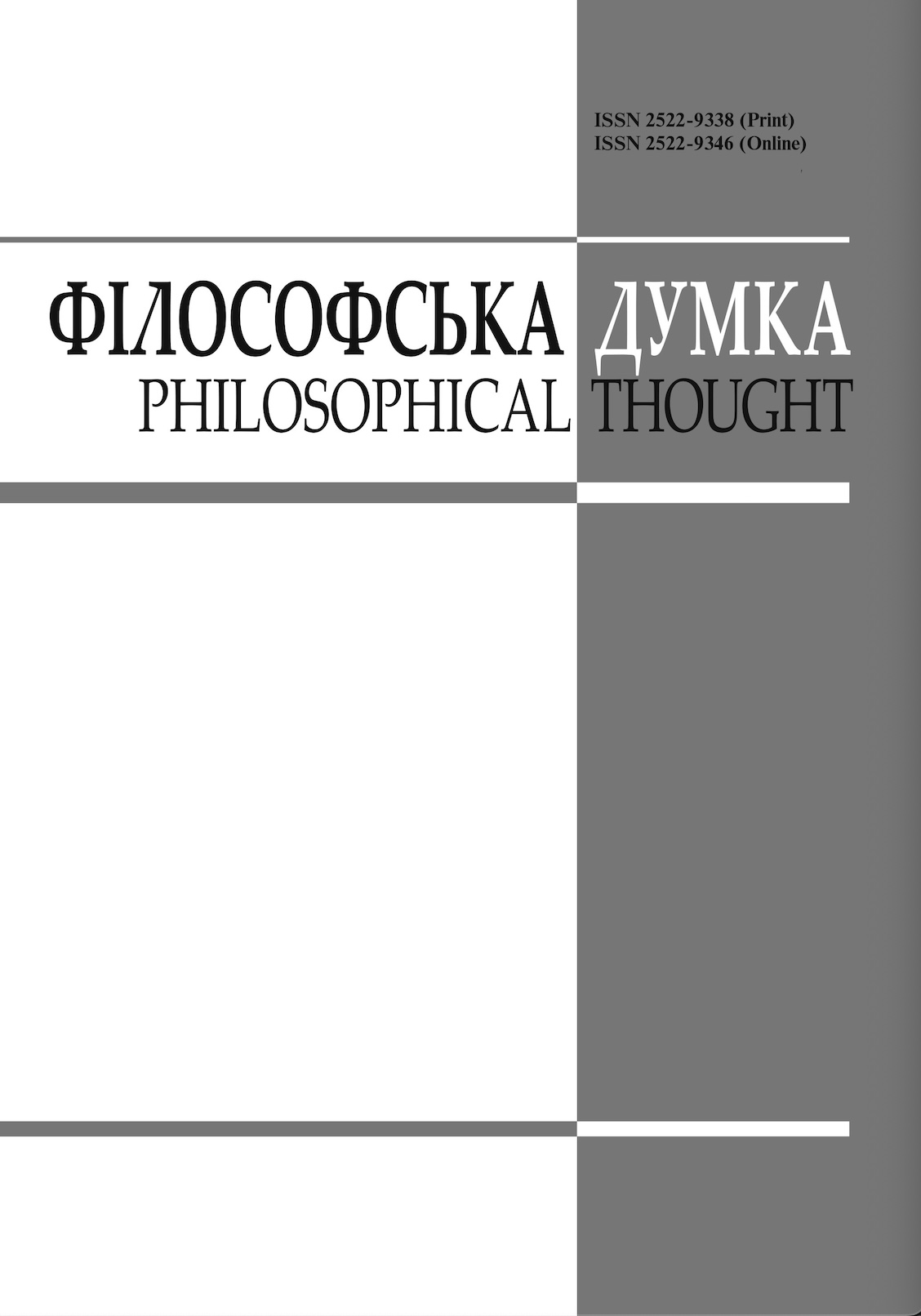Philosophy of science within the system of present-day education: philosophy of special sciences and philosophy of experiment
Keywords:
philosophy of special science, experimentation, experiment, philosophy of economics, experimental economicsAbstract
The article gives a brief description of major developments in the philosophy of science beginning with significant transformation of the field in the mid 1990’s. These developments are grouped under the following headings: philosophies of special sciences, studies of experiment, cognitivism and naturalism in studies of scientific reasoning, «disunity of science». The author focuses on the philosophy of economics and the recent debates about the possibility of using an experiment in economics. From the prospect of the philosophy of science a remarkable fact about the new philosophy of specific scientific fields is its engagement in traditional philosophical topics from a new location. Contemporary philosophers of science still regard their traditional philosophical tools of conceptual analysis and the role of justification assessment important, but in close interaction with scientific work in particular disciplines.
References
Blaug M. The Methodology of Economics, Or How Economists Explain. — Cambridge: Cambridge University Press, 1992. / Рос. переклад див.: Блауг М. Методология экономической науки, или Как экономисты объясняют. — М.: НП «Журнал ВЭ», 2004.
Game Theory with Economic Applications // R.J. Aumann, S. Hart (eds). — S.l.: Elsevier / North Holland, 2003.
Friedman M. Essays in Positive Economics. — Chicago: University of Chicago Press, 1953.
Hacking I. Representing and Intervening. — Cambridge: Cambridge University Press, 1983. / Рос. переклад див.; Хакинг Я. Представление и вмешательство. — М.: Логос, 1999.
Handbook of Experimental Economics Results // C.R. Plott, V.L. Smith (eds). — Princeton, NJ: Princeton University Press, 2008.
Kahneman D., Slovic P., Tversky A. Judgement under uncertainty: Heuristics and biases. — Cambridge: Cambridge University Press, 1982.
Latour B. Science in Action. — Cambridge MA: Harvard University Press, 1986.
Kitcher P. The Advancement of science. — Oxford: Oxford University Press, 1993.
Mäki U. Realism // In The Handbook of Economic Methodology / J.B. Davis, D.W. Hands,U Mäki (eds). — Cheltenham: Edward Elgar, 1998.
Mäki U. Realisticness // The Handbook of Economic Methodology / J.B. Davis, D.W. Hands, U. Mäki (eds). — Cheltenham: Edward Elgar, 1998.
Mäki U. Coase. R. H. // The Handbook of Economic Methodology / J.B. Davis, D.W. Hands, U. Mäki (eds). — Cheltenham: Edward Elgar, 1998.
Neuroeconomics Decision making and the brain / Ed. by P.W. Glimcher. — New York: New York University Press, 2009.
Philosophy of Scientific Experimentation // Ed. by H. Rader. — Pittsburg: Pittsburg University Press, 2003.
Pickerring A. Living in Material World: On Realism in Practice // D. Golding, T. Pinch, S. Shaffer (eds). The Use of Experiment. — Cambridge: Cambridge University Press, 1989.
Robbins L. An Essay on the Nature and Significance of Economic Science. — London: Macmillan, 1935.
Downloads
-
PDF (Українська)
Downloads: 611
Published
How to Cite
Issue
Section
License
Authors who publish with this journal agree to the following terms:
- Authors retain copyright and grant the journal right of first publication.
- Authors are able to enter into separate, additional contractual arrangements for the non-exclusive distribution of the journal's published version of the work (e.g., post it to an institutional repository or publish it in a book), with an acknowledgement of its initial publication in this journal.
- Authors are permitted and encouraged to post their work online (e.g., in institutional repositories or on their website) prior to and during the submission process, as it can lead to productive exchanges, as well as earlier and greater citation of published work (See The Effect of Open Access).


